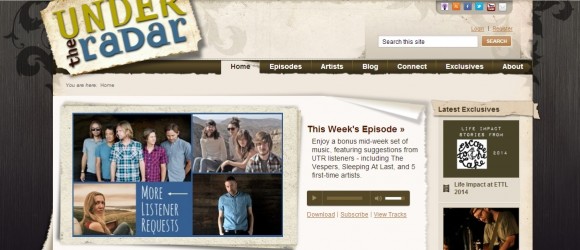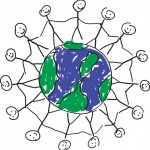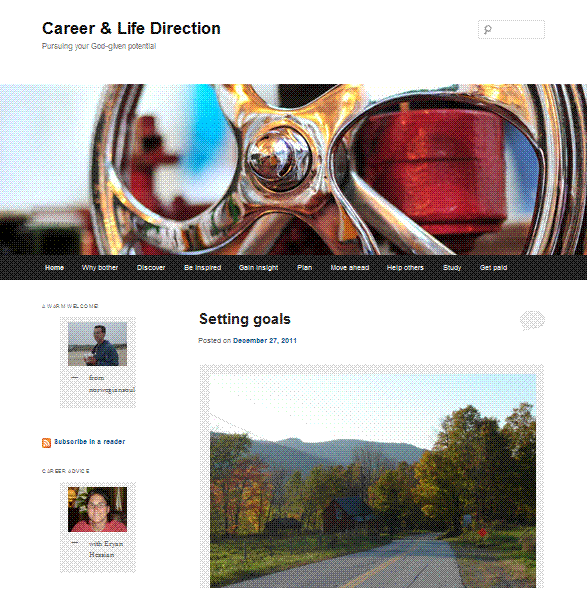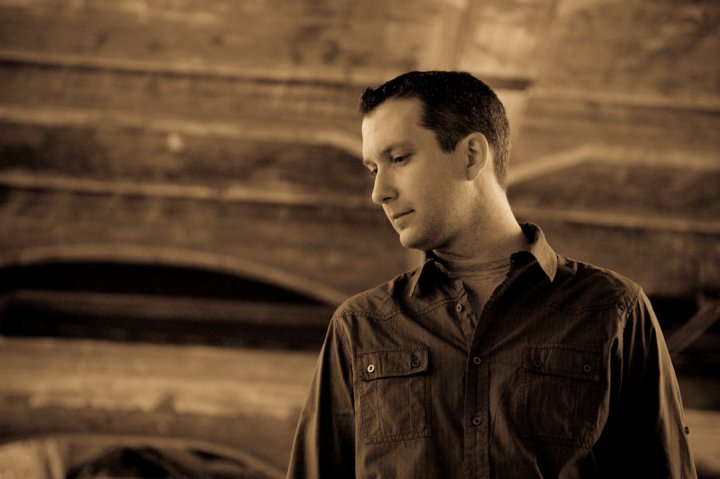Personal development
- At February 17, 2015
- By Nathan
- In Career Planning
 0
0
Would it makes sense to compare your life and what you have to offer to a product that needs to be developed? Could reflection on a standard marketing strategy provide a new and necessary perspective?
Viewing any person primarily as a product to be developed and marketed would be a mistake. Nowadays, an excessively materialistic mindset leads some to view pretty much everything in terms of cash value. If a dollar value is lacking, whatever is being considered isn’t said to be worth very much. All too often personal worth is determined by net worth. And soon enough this bottom-line thinking leads to a distorted understanding of human life.
That being said, it may be valuable to think about who you are and what you have to offer in terms of the classic Five P’s of Marketing which includes (1) Product, (2) Price, (3) Place, (4) Promotion, and (5) Perseverance. And today, we will consider the first one.
My introduction to marketing took place as I set out to learn about marketing music. In this context, the obvious place to begin is with some good-quality music to offer people, whether in a live setting or via a studio recording. And this takes an incredible amount of time, effort and money; it obviously doesn’t just happen. Likewise, in terms of a career, we each need to honestly ask what we have to offer that is substantial to a potential employer or client in a very competitive world.
Do you have an appealing “product” to present to anyone right now? Or is this the time when you really need to focus on your personal/product development?
A creative product needs to be carefully produced
My story is similar although not quite the same. Aspiring to teach at the college level, I had my sights set on a Ph.D. While I got close, by way of a graduate degree, this basic educational requirement evaded my grasp. Several more years of study would have been required, and this would have cost thousands of dollars – money I didn’t have. But I applied for a number of college teaching jobs just the same, and of course wasn’t hired.
In other words, it doesn’t make sense to hone our resume writing skills before we have anything substantial to put in our resumes. Over the years I have read a lot of resumes that didn’t really say a whole lot. At the same time, I have read a large number of job descriptions which tend to be very specific and concrete.
Here’s the harsh reality:
A high school education doesn’t count for much. And many university programs don’t really matter. A few teachers might tell you how wonderful you are, but those teachers are never going to hire anybody. In fact, you have hired them. Most employers are looking for very specific training and skills together with years of experience.
Yes, some people are born into very privileged situations. And personal/product development may not be a pressing need for them. But for most people, it typically takes an incredible amount of hard work simply to move beyond step number one.
© Career & Life Direction 2015. All rights reserved.
Courage and calling
- At January 20, 2015
- By Nathan
- In Career Planning
 0
0
Courage & Calling: Embracing your God-given potential could have been designed with this website in mind. But of course it wasn’t. The author, Gordon T. Smith, wrote the first edition back in 1999 during a sabbatical in the midst of a personal transition. The edition I picked up had been revised in 2011, about the time this online resource began to take shape.
Search and you will find that all sorts of people have been reflecting and talking and writing about these issues for a long period of time. And this, I suspect, will never change. Or at least not any time soon. And each person brings something unique to the discussion.
Gordon grew up in Ecuador and worked in the Philippines before arriving in Canada, and most recently Calgary, where he now serves as the president of Ambrose University. He is ordained with the Christian & Missionary Alliance in Canada, has a Ph.D. from Ateneo de Manila University, and has been working as an academic and administrator in theological colleges for most of his life.
But fear not, this isn’t a dry or dull academic document. It is written, rather, in a straightforward and accessible style and is quite easy to read. As an aside, I found that focusing on this book was more refreshing and enjoyable – and likely beneficial – than staring at a computer screen for the same period of time.
What is this book essentially about? And who will benefit from taking the time to read it?
As the title suggests, the focus is on the courage that each of us will require in order to live out our unique vocation or calling. Courage & Calling is roughly divided in half. The first half is dedicated to a theological vision (for lack of a better phrase) for work and practical insight about the career selection process. The next half begins with a closer look at four specific types of work: business, the arts, education, and religious leadership. What follows is a discussions surrounding five “points of leverage” or rather ways in which we can each increase our effectiveness. This includes: developing courage, continuous learning, emotional resilience, working well with others, and establishing structure and order in our lives.
Of all the points of leverage discussed, Gordon feels that developing emotional resilience is likely the most important one. With this in mind, on page 221, you will read this: “Lack of emotional maturity and resilience will sabotage our lives and vocations.” Strong words perhaps, but nonetheless words that need to be taken to heart.
Unlike other books I have read, and briefly reviewed, this one has a strong emphasis on the organizational side of life. In other words, you will find practical advice here specifically in terms of how to be more effective within a particular organization. At the same time, Gordon emphasizes the importance of carefully selecting where you work. This may sound like a luxury to some. But it makes sense to find a place to work that is a fit with who you are as a person if at all possible. There is also practical advice here related to deciding when it might be a good idea to resign and move on.
One more point to ponder related to content.
Throughout his book, Gordon addresses a number of misunderstandings related to the career selection progress, particularly within the various Christian communities he has been a part of. For example, he feels that personal desire has been misunderstood and often regrettably downplayed. At the same time, he thinks that there has been too much emphasis on meeting immediate needs and not enough instruction on how to determine which needs to meet. For a sense of personal vision and direction is required in order to live a more effective life.
Trying to figure out what do to next? Longing for more of a sense of person direction and focus in your life? Interested in discovering what a “theological vision” for your career might look like? Hoping to move beyond a merely secular take on life? Well then, reading this book would likely be well worth your time.
*Another version of this review is available at Converge Magazine. And here is a brief video by Gordon T. Smith about vocational discernment.
© Career & Life Direction 2015. All rights reserved.
Lessons from the studio and beyond
- At October 08, 2014
- By Nathan
- In Career Planning
 0
0
There are lots of Five-Ways-To-Change-Your-Life-Really-Fast, etc. articles available online. Advice is easier now than ever to come by. Got a problem? Have a question? Just type it in at the top of the screen. Really fast. Pick a popular online sage and search their vast collection of public pondering.
Any yet, when the computer is turned off life still has its challenges; the Internet hasn’t changed everything or even much of anything. And problems remain. Positive change is often elusive and usually takes a very long time.
And with that less-than-inviting introduction, what follows is a brief reflection on a few lessons learned in the midst of a rather large creative project. Well, it was large for us anyway. People make music and CD’s all the time. But Misfits & Moonbeams was the first recording project that I have been a part of. And I only dropped in at the studio briefly at the beginning and the very end.
So what did I learn during that time? And what could I say that might be helpful along the way?
1. Don’t try too hard to please everyone or even yourself
Most people have likely heard most of this before. But it’s worth repeating. No matter what you do, some people will like it and some people won’t. That’s life. For that matter, some days you will like what you do and some days you won’t. Feelings come and go. When it comes to music, there are 18,000 different options and a wide variety of personal preferences. All the opinions and preferences out there and “in there” can make a person crazy.
Pleasing others and pleasing yourself are both important, even very important, secondary goals to keep in mind. If either is completely ignored for an extended period of time there will be serious problems. Each artist has to take the time to find their own voice. And music is made to be listened to and appreciated and enjoyed. But there is much more to life than just trying to please a bunch of people including yourself.
Trying to please God, for example, can come across as being corny and cliché. And it can seem complicated at times. But pursuing what God wants whether in music or art or in life makes much more sense as a primary goal than trying to please incredibly diverse, sometimes fickle, often insecure, and occasionally very confused people.
2. Some decisions involve moral issues but many don’t
Once again, this is nothing new; and yet, this point can be easily forgotten. There were moral issues, matters of right and wrong, involved in this recording project. The main one had to do with what is often known as stewardship. The idea being that what has been given to each person (and each person has been given something) is intended to be used.
To state things personally and plainly, if I don’t do anything with what I have been given I am clearly in the wrong. Or, if I attempt to live as if I have been given what I have not been given, again I am in the wrong. The right thing to do, is to be who I am for the benefit of others, to make sure to discover and then use the specific gifts received from an incredibly generous God.
In case you were wondering, I am not particularly good at writing meaningful music and don’t pretend to be. But my wife is. She just seems to do this all the time. It comes naturally. She really enjoys it. And she has been doing this for years. My abilities and interests have more to do with writing and speaking and organizing things.
That being said, that are probably 10,000 ways each person can go about making use of what has been given. For example, Sharlene didn’t really need to make an album in order to share her music – but that is one method she chose. And most of the creative decisions along the way were largely non-moral issues. It didn’t matter so much whether the percussion came in on the first verse or the second. Either way, life would go on.
3. Searching is required to find people who need what you have
This is to say that promoting yourself and marketing what you have isn’t such a bad thing after all. The problem is that most noble things have been corrupted in this world, and marketing is one of them. But if someone has a good well on their land, it might be a good idea to look for people who could make good use of all that water. Don’t you think?
Somewhere along the way, I read about how much time and effort and money Steve Bell invests in order to let people know about his latest recording projects. It’s a lot. The amount of money he typically spends would surprise you. But most people don’t just intuitively know about everything automatically. It is no offence to say that somebody usually needs to take the time to tell them.
If I don’t take the time to let people know about something I have to offer, who will? Authentic spirituality and a measure of passivity can go together sometimes. The idea isn’t to be pushy. But all too often, there is too much passivity and not enough spiritually motivated and individually specific activity. And yes, I had to learn this the hard way.
So I spent the past three months letting as many people as possible know about Sharlene’s debut CD. Basically, this was my full-time job. And even now, there is work that remains.
© Career & Life Direction 2014. All rights reserved.
Six things to do
- At November 09, 2011
- By Nathan
- In Career Planning
 0
0
It can be encouraging to make lists and then be able to check things off that you have accomplished. Here are a few career-related tasks that you might want to consider:
1. Get to know yourself. All sorts of career-counselling-type people I have bumped into online and in ordinary life make a living helping people figure out who they are. Sounds strange, but then again, maybe we can all use some help. After all, why try to decide what you want to do, or do next, for a living if you don’t even really know who you are?
2. Develop your interests and abilities. Fine, so you discover that you are, say, good with numbers and tend to enjoy administrative type work. Congratulations! But, you haven’t arrived. Now you just know where you need to invest your time, money, and energy. It is time to study, study, study and practice, practice, practice and work, work, work.
Read More»Personality potential
- At November 04, 2011
- By Nathan
- In Career Planning
 0
0
 Trying to be someone you are not is a waste of time.
Trying to be someone you are not is a waste of time.
This basic observation has been bent in recent years in order to support all sorts of bizarre beliefs and behaviour. But engaging in behaviour like whacking people on the head with heavy objects, baseball bats, tire irons, rolling pins, etc. is still an odd way to go about discerning your authentic personal identify or core personality type.
A dishevelled researcher covered in ivy may wax eloquently about discovering the “head-hunting'”gene, but only until some enlightened journalist discovers another exciting use for their microphone or things take a turn for the worse back home in the kitchen. Distortions aside, it is important to try to be yourself.
Okay, so you might not be the life of the party, but you have a distinct personality nonetheless. Everyone does. Considering a new career direction, it is a good idea to maximize your particular personality potential in the work place by gaining a greater sense of self-awareness.
One way to go about doing that is to take a personality test designed by TypeFocus Careers. David Wood and his team in Victoria, B.C. offer a free online evaluation or a more detailed self-awareness report for $34.95. If you are connected to a college that has already contracted to use the Typefocus service you might be able to get the more extensive version for free.
This “test” is based on the famous Myers-Briggs Type Indicator (MBTI) which contains 16 different personality types. Actually there are 8 categories that can be combined in 16 different ways. If, for example, you are energized by being alone instead of being with people you would be identified by an I. Then, if it turns out that you tend to acquire new information via intuition as opposed your senses you would be given an N. If you usually make decisions by thinking in contrast to feeling a T would be tacked on. A J would be your finally letter if you like to bring your structure to the outside world (i.e. judging) rather than taking things as the come (i.e. perceiving).
This type of exercise really pays off if you can then identify job families, and eventually a specific career, that is suited to someone with your personality type
© Career & Life Direction 2011. All rights reserved.
The next step
- At October 29, 2011
- By Nathan
- In Career Planning
 0
0
 Reaching your carefully chosen career destination will often involve taking 10,000 or so small, make that very small, steps. The distance is just too great for most mere mortals to make in a single bound.
Reaching your carefully chosen career destination will often involve taking 10,000 or so small, make that very small, steps. The distance is just too great for most mere mortals to make in a single bound.
Oh, it would be nice to wake up one morning and discover that aside from winning the lottery, loosing 50 pounds, and becoming fluent in French, etc. you had also magically acquired your desired career. But down here on Earth…things don’t usually work out that way. So in order to take the next step it is necessary to identify the steps you have already taken, and hence the next appropriate step to take.
If you are feeling lost in life it is that much more important to slow down and try to determine where you are at in relationship to where you want to be. A mall style mental map with nice bright letters indicating “You are Here” could come in handy while trying to escape from your career wilderness. Similarly, picturing a GPS system tracking some poor soul spinning in circles year after year could provide the much-needed inspiration to stop. Which reminds me that one definition of insanity is doing the same thing over and over again with the same predictable and unsuccessful result.
Being busy, even if this just means aimlessly running here and there, can suggest a sense of direction and accomplishment – from a distance. Some people may lack in direction what they make up for in speed and still live out their days being constantly affirmed by casual acquaintances. And yet what good is all the activity if it just means going nowhere in particular really fast?
It may be tempting for some reading this to mistakenly assume, employing religious language, that neglecting their own responsibility is somehow synonymous with trusting in God. But this isn’t an either/or situation it is rather both/and. Confidence in God, in Christ, is critical along life’s way and so is a Christian-based emphasis on personal initiative. Those who make a point of not planning will, in all likelihood, just find that they are eventually forced to plug themselves into somebody else’s plan.
So where are you at right now? Lacking a clear vision of your destination? Unclear exactly where you are along the way? Why not take an hour or even a whole day in the not-to-distant future to sit down and carefully consider your next step.
© Career & Life Direction 2011. All rights reserved.
Paradise lost
- At October 10, 2011
- By Nathan
- In Career Planning
 0
0
 If only everything in life was easy. This longing for a less difficult life and a much improved world is wide-spread. Talk to anyone for a length of time and you will hear stories of hurt and hardship. Wealth and power does make a world of difference, but even then life is hard in one way or another – for everyone.
If only everything in life was easy. This longing for a less difficult life and a much improved world is wide-spread. Talk to anyone for a length of time and you will hear stories of hurt and hardship. Wealth and power does make a world of difference, but even then life is hard in one way or another – for everyone.
This world is just not the way it should be; paradise is but a memory. And as you work towards a more suitable career, it is important to keep this simple, basic reality in mind. For an unrealistically positive view of life is just as damaging as a chronically negative one. Neither will prepare you to live in the world that actually exists.
A few words of caution:
First of all, don’t expect that your life dreams and career aspiration will necessarily just fall into place. It is much better to anticipate struggles, difficulties, setbacks, conflict, and hard work than to expect an easy road. Sure, take one day at a time; but also be prepared for what you may have to face each day.
Second, don’t expect God to always directly intervene in this broken world to make your life easier. It is a sensitive thing to even mention, but asking God not to let any of your loved ones ever die is a waste of time. They will and so will you. That is life. God may on occasion choose to answer our large requests…but He doesn’t have to. You could be unfairly fired and find yourself without a job for a long period of time. Don’t blame God. That’s life.
Third, try to respect God’s sovereignty and your own. Make a point of trying to manage your life under God. This is a phrase I have used before in order communicate the importance of taking appropriate responsibility for our own lives. We want to have it both ways sometimes. We want to have the freedom and power to do whatever we want and, at the same time, to be protected from the consequences of our poor decisions.
Being satisfied with this world as it is would be a mistake. And yet, sooner or later we all have to learn how to live in it.
© Career & Life Direction 2011. All rights reserved.
A walk in the woods
- At September 27, 2011
- By Nathan
- In Career Planning
 0
0
 One sure thing not to do, as you seek to establish your own identity and identify a career that is a fit with who you are, is to equate your future career with your authentic self. A career is really best understood as just a partial and temporary expression of who you are; it doesn’t define who you are, or at least it shouldn’t.
One sure thing not to do, as you seek to establish your own identity and identify a career that is a fit with who you are, is to equate your future career with your authentic self. A career is really best understood as just a partial and temporary expression of who you are; it doesn’t define who you are, or at least it shouldn’t.
“How exciting, our long-awaited taxi driver has finally come!” Not likely the first words to come out of the mouths of your parents as they caught a glance of your smiling face in the maternity ward.
But if a career does not determine who you are as a person, not to mention your dignity or worth, what does? Something to think about.
One way to at least begin to discern your authentic identity is to get in the habit of going on long walks in the woods – all alone. Alone? Yes, alone. You will, of course, need encouraging relationships, language skills, a supportive community, formal education, new experiences, etc. to help you gain a sense of who you are. But you will also need solitude and silence and a degree of danger.
A regular dose of S & S & D has a way of filtering the voices around you and alerting you to other realities.
Please note, that I am not encouraging anyone to intentionally place themselves in a potentially life threatening situation. If you are out in the woods and coming across a cliff decide to merrily leap from the edge armed only with your Wal-Mart umbrella…don’t blame me for the consequences. If there are bears in your neighbourhood, be sure to bring a gun.
It is just that all sorts of voices are coming in your direction, voices on the outside and voices on the inside, voices that are attempting to define you in a way that fits with an agenda. And these voices need to be turned off from time to time or at least turned down if you hope to eventually view yourself from a more authentic perspective.
Isolating yourself in such a way that your senses are on high alert can be a step in the right direction.
© Career & Life Direction 2011. All rights reserved. Home.
Clarity and confusion
- At September 15, 2011
- By Nathan
- In Career Planning
 1
1
As you pursue your life purpose, do not be alarmed if from time to time you feel that doing so is completely pointless. Being overwhelmed with a sense of the futility of life – that is, the apparent absurdity of what everyone who has ever lived has done, thought, or said – is actually a positive experience. For this temporary despair will allow you to break out of the mainstream secular bubble, where people pretend that meaning can be perceived without God’s perspective, and finally breathe some fresh air.
Life is meaningless from a merely human perspective and pretending otherwise is, well…just pretending. Living as if God is a million miles away from reality and yet carrying on as if this blog matters or what you plan on doing later in the day makes a bit of difference is bizarre.
Clarifying your career direction, among other things, begins with a recognition that God is the only one who really knows the full point and the purpose of your life and mine. Details will always be lacking; some confusion is to be expected. But having confidence or faith in God will empower you as you seek to gain at least a glimpse of God’s larger purpose for your life.
Armed with a sense of personal direction, you will then be able to manage your own life under God. Rather than letting other people run your life, or wandering blindly trying this and that, you will be able to make decisions more easily and move ahead. No, you will not have all the information you want, but you may find that you do have some of the core and critical information you need. If someone suggests that you really ought consider devoting the next 15 years of your life to becoming a professional polka dancer, you can refer to your mission statement and make an informed decision.
This isn’t to say that your life will now be neat and tidy or safe and secure. But now, instead of dealing day by day with colossal career confusion you can focus your energy on dealing with many other challenges that you are sure to face in your life.
© Career & Life Direction 2011. All rights reserved.
Information overload
- At September 02, 2011
- By Nathan
- In Career Planning
 0
0
 Clarifying your career direction will require taking the time to find the strategic information that you need to make decisions and move ahead. Being unable to choose which direction to take often indicates that, while you may have all sorts of information bouncing around in your brain, you do not have the specific information you need right now.
Clarifying your career direction will require taking the time to find the strategic information that you need to make decisions and move ahead. Being unable to choose which direction to take often indicates that, while you may have all sorts of information bouncing around in your brain, you do not have the specific information you need right now.
So, if you feel stuck, turn off your TV/Internet/cell phone and sit down with one sheet of paper before you. Write down what you really need to know on the left hand side and how you might go about acquiring that information in a timely fashion on the right. You might be surprised how this simple exercise will focus your attention and your energy.
If you wanted to, say, plant a flower garden you would need to know what type of flowers would do well where your flower garden is going to be. It may be interesting but it really won’t help much to read up on flourishing flower gardens in Siberia – unless of course that is where you live. Once you have determined what you need to know you can figure out how to find what you need. Watching the evening news for the next 10 years might eventually provide you with that information and so would one phone call to the local flower shop.
If you wanted to learn how to provide a specific, marketable, tangible service that is in demand, like nursing care, you could then easily determine the research that is required. If you really do not have any idea what you want to do your situation will be more difficult, but you can still consider how you might get to know yourself and more accurately discern your authentic desires.
Focus. Focus. Focus. Most of the information that drifts in your direction will be useless when it comes to clarifying and acquiring a career. Determine what you need to know and only then get back on the Internet and the phone in order to find it.
© Career & Life Direction 2011. All rights reserved.
Green on the inside
- At June 30, 2011
- By Nathan
- In Career Planning
 0
0
 Water. It falls from the sky and springs up from the earth. It flows from the hills to the plains. It drains into oceans that cover most of the earth, and it is essential for life.
Water. It falls from the sky and springs up from the earth. It flows from the hills to the plains. It drains into oceans that cover most of the earth, and it is essential for life.
But what does water, clean water, have to do with the development of your career?
For many years 15,000 people regularly dumped their raw sewage into this stream, which drained into a large lake, and eventually made its way to Hudson’s Bay. It was a sad period in world history for the frogs and the fish and the people and the polar bears along the way. Now, however, the frogs and the fish have found a friend in the form of a very costly sewage treatment plant.
Nobody wants somebody else’s garbage and waste in their back yard. Although the reaction in the environmental movement is sometimes extreme, the “green, green, lima beans” as George Bush used to call them have a point. The odd inconsistency is that while many people are passionately green on the outside some appear to be apathetic about “polluting” their own souls.
May I suggest that employers would much likely prefer if you ran your character flaws, emotional issues, and selfish tendencies, etc. through a sewage treatment plant of sorts before coming to work for them. Ask someone you know and trust this simple question: “What can you see in me that you would rather not see?”
People down stream, as it were, will be really glad you did.
© Career & Life Direction 2011. All rights reserved.




































